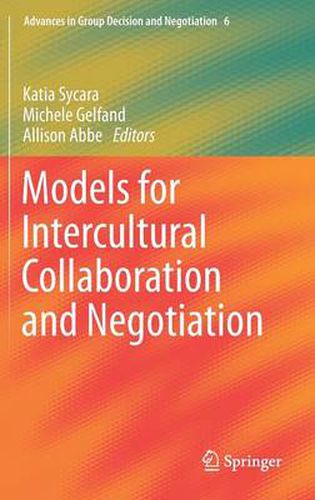Readings Newsletter
Become a Readings Member to make your shopping experience even easier.
Sign in or sign up for free!
You’re not far away from qualifying for FREE standard shipping within Australia
You’ve qualified for FREE standard shipping within Australia
The cart is loading…






This title is printed to order. This book may have been self-published. If so, we cannot guarantee the quality of the content. In the main most books will have gone through the editing process however some may not. We therefore suggest that you be aware of this before ordering this book. If in doubt check either the author or publisher’s details as we are unable to accept any returns unless they are faulty. Please contact us if you have any questions.
This book is the first to bring together research material from different communities, Computer Science and especially Artificial Intelligence, and Social Sciences, e.g. Anthropology, Social Psychology, Political Science that present ideas and viewpoints, methods and models on inter-cultural collaboration and negotiation.
With increasing globalization of business and science, cultural differences of the parties are an important factor that affects the process and outcomes of collaborative and self-interested interactions. The social science literature on culture as well as human collaboration and negotiation is vast. Most of this literature is devoted to work within the same culture. Artificial intelligence researchers, on the other hand, have developed computational models of cooperation, conflict resolution and negotiation, but paying almost no attention to identifying and modeling cultural factors. In recent years, we have witnessed a great increase in interest in understanding inter-cultural interactions. This has led to increased interest of social scientists and computational scientists in theoretical and experimental analysis of inter-cultural exchanges, modeling and support. Currently, these communities are largely unconnected. There is a great need to bring them together to share research work and experiences, discuss ideas and forge interdisciplinary collaborative relations.
This book will be of interest to researchers from AI/computer science and social/behavioral sciences fields, such as psychology, sociology, communications, organizational science.
$9.00 standard shipping within Australia
FREE standard shipping within Australia for orders over $100.00
Express & International shipping calculated at checkout
This title is printed to order. This book may have been self-published. If so, we cannot guarantee the quality of the content. In the main most books will have gone through the editing process however some may not. We therefore suggest that you be aware of this before ordering this book. If in doubt check either the author or publisher’s details as we are unable to accept any returns unless they are faulty. Please contact us if you have any questions.
This book is the first to bring together research material from different communities, Computer Science and especially Artificial Intelligence, and Social Sciences, e.g. Anthropology, Social Psychology, Political Science that present ideas and viewpoints, methods and models on inter-cultural collaboration and negotiation.
With increasing globalization of business and science, cultural differences of the parties are an important factor that affects the process and outcomes of collaborative and self-interested interactions. The social science literature on culture as well as human collaboration and negotiation is vast. Most of this literature is devoted to work within the same culture. Artificial intelligence researchers, on the other hand, have developed computational models of cooperation, conflict resolution and negotiation, but paying almost no attention to identifying and modeling cultural factors. In recent years, we have witnessed a great increase in interest in understanding inter-cultural interactions. This has led to increased interest of social scientists and computational scientists in theoretical and experimental analysis of inter-cultural exchanges, modeling and support. Currently, these communities are largely unconnected. There is a great need to bring them together to share research work and experiences, discuss ideas and forge interdisciplinary collaborative relations.
This book will be of interest to researchers from AI/computer science and social/behavioral sciences fields, such as psychology, sociology, communications, organizational science.